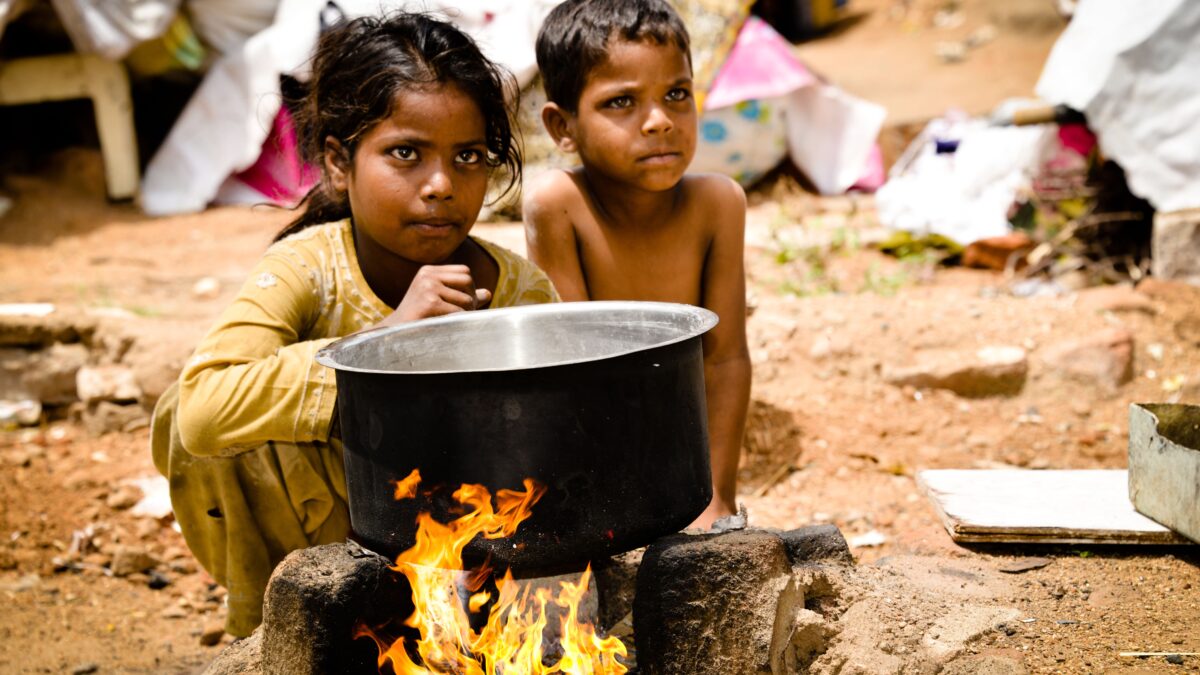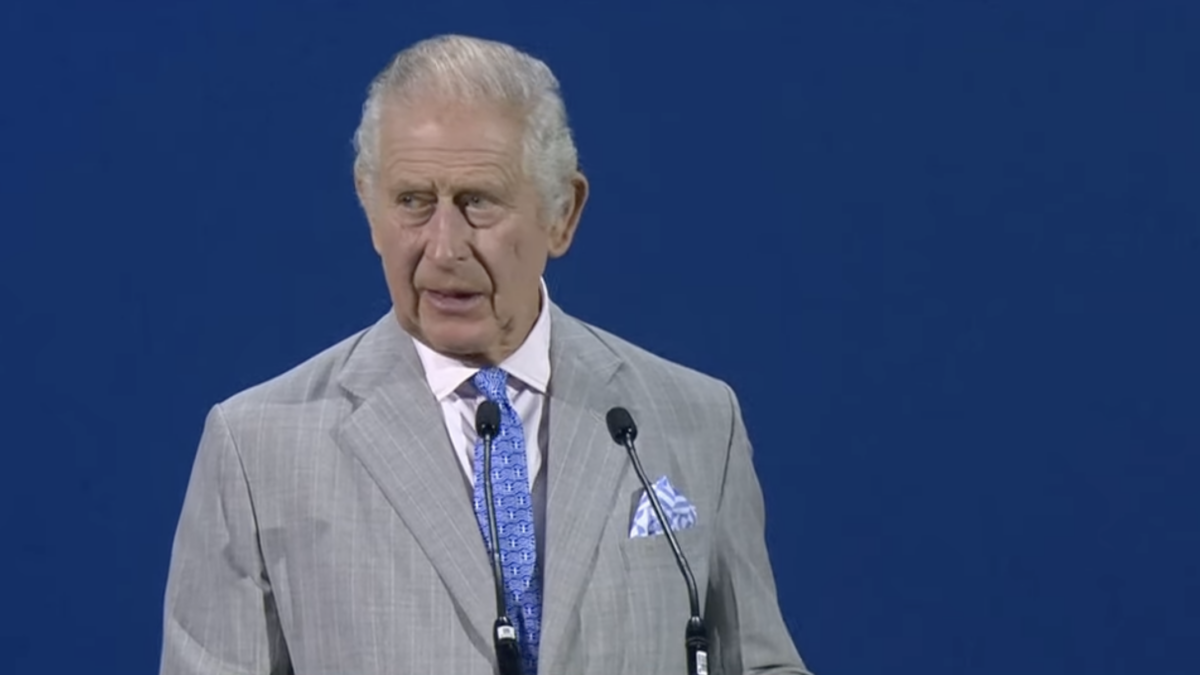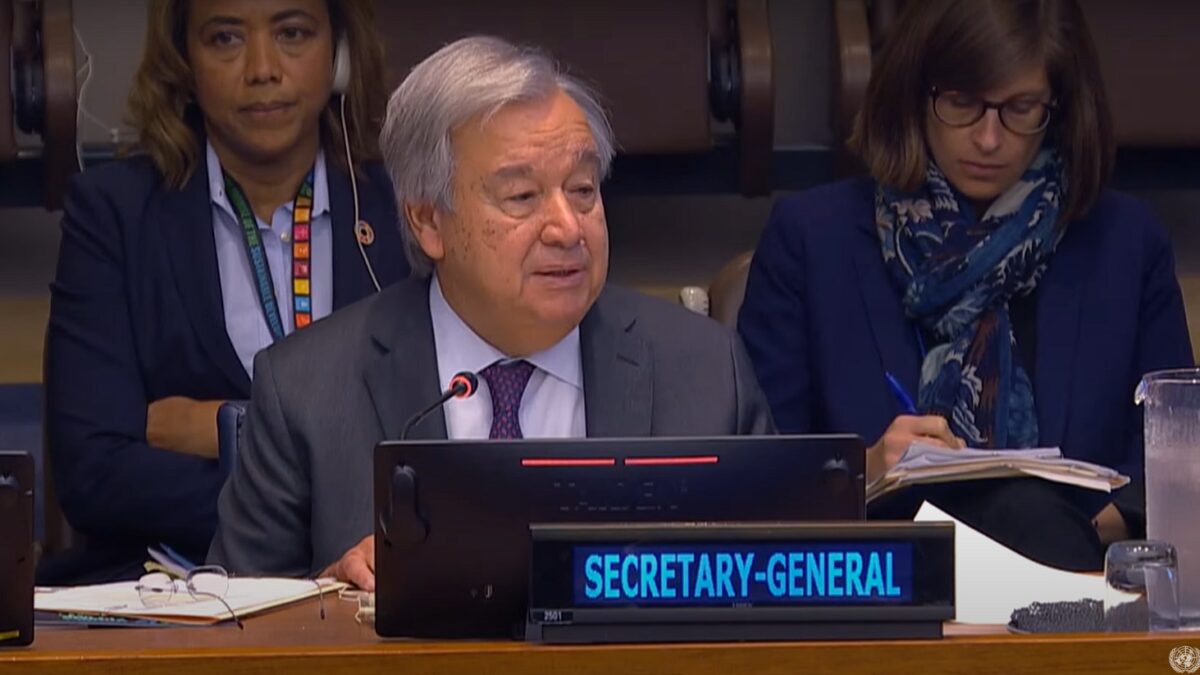World leaders from developed nations will be pressured to “curb their excessive appetite for meat” during the United Nations’ upcoming COP28 annual climate conference, Bloomberg News reported Saturday. “Nations that over-consume meat will be advised to limit their intake while developing countries — where under-consumption of meat adds to a prevalent nutrition challenge — will need to improve their livestock farming,” wrote Bloomberg Journalist Agnieszka de Sousa.
The UN’s anti-meat agenda is part of the UN’s Food and Agriculture Organization’s (FAO) COP28 “roadmap” for limiting the rise in global temperatures by 1.5C, per the Paris climate agreement.
The FAO insists the meat industry is responsible for destroying the planet via methane and nitrogen emissions. However, contrary to the UN’s suggestion, the science is not “settled” on livestock emissions. For example, a group of UC Riverside researchers discovered this year that methane traps heat in Earth’s atmosphere and creates cooling clouds that offset 30 percent of the Earth’s surface warming. In other words, livestock farming is likely cooling the planet, therefore counteracting global warming.
Despite the unsettled science, FAO plans to create “transformative change” in the food industry. The FAO is also committed to aiding countries in implementing the “Emirates Declaration on Sustainable Agriculture, Resilient Food Systems, and Climate Action,” a food “transformation” pledge.
These food “transformations” aim to drastically limit or eradicate meat consumption, among other things. “If we don’t tackle the livestock problem, we are not going to solve climate change. The key problem is overconsumption,” said Dhanush Dinesh, the founder of Clim-Eat, a climate change organization. The Eat-Lancet Commission, another environmentalist organization, recommends that people consume no more than 15.7 kilograms of meat annually. The average American consumes about 127 kilograms of meat each year.
Some climate aims are even more radical. The C40 Cities Climate Leadership Group, a globalist Michael Bloomberg-run climate organization made up of nearly 100 cities across the globe, including 14 American cities, aims to completely eradicate meat and dairy consumption by 2030.
Climate activists tend to be upfront about their goals of curbing “overconsumption,” but they’re often coy about how they’ll reach their goals. This is because the only way climate activists are going to dramatically limit or completely eliminate meat consumption is by force. The main way they have been attempting to compulsively limit meat consumption is by shutting down farms.
Last year, the government of the Netherlands announced plans to forcibly buyout as many as 3,000 farms to meet 2030 climate goals. The affected Dutch farmers would be banned from starting farms anywhere else in the European Union (EU). Another way to shutter farms is by driving them into bankruptcy. The Netherlands also subjected farmers to untenable climate regulations on fertilizer and livestock, giving many no choice but to close down.
It’s not just the Dutch whom radical climate policies have impacted. In 2021, Sri Lanka banned chemical fertilizer, resulting in massive crop failures and sky-high fuel prices. Since then, Sri Lanka has descended into bloody political unrest and economic ruin.
Using authoritarian measures to destroy farmer’s livelihoods is bad enough, but consider the nutritional deficiencies posed by a meatless world. Meat, which has been a staple of the human diet for thousands of years, contains essential, bioavailable amino acids that simply are not found in plant protein.
Climate activists want meat replaced with the consumption of lab-grown meat (which could ironically be detrimental to the environment) and bugs (it turns out that’s not just a “racist” right-wing conspiracy). But no one is going to eat grasshoppers if ribeyes are still an option. The only way to force people to eat bugs and lab-grown meat is by artificially causing food shortages, which is already a potential threat in Europe thanks to the war on Dutch farmers — the EU’s largest meat exporters.
Artificial food shortages will mean thousands, if not millions, could die from starvation and nutritional deficiencies. Perhaps that’s part of the plan. Environmentalists believe each individual person’s carbon footprint is detrimental to the environment, and many actively encourage young people to forgo having children for the sake of the planet.
“Should I have children, their greenhouse gas emissions will cause roughly fifty square meters of sea ice to melt every year that they are alive,” wrote journalist Elizebeth Rush in her book The Quickening: Creation and Community at the Ends of the Earth. “Just by existing, they will make the world a little less livable for everyone, themselves included.”
Rush isn’t alone in her climate anxiety. A recent study found that 39 percent of young people are “hesitant to have children” because of climate change. Among them are celebrities like Prince Harry and Meghan Markle, who publicly vowed to limit their family size to two children max in the name of “climate change.”
The UN’s amped-up war on meat, debuting at COP28, is elitist and hypocritical. A recent study found that the world’s richest 1 percent account for more carbon emissions than the poorest 66 percent. Indeed, expect that the Great Reset poster boy King Charles, Fortune 500 CEOs, and esteemed politicians from around the globe will travel to COP28 in private jets, as they do every year.
Expect them to be eating meat, as well. According to de Sousa, the summit will be only two-thirds plant-based. Why not 100 percent? Because the global leaders attempting to dictate how the masses travel, eat, and reproduce have no interest in reigning in their lavish, polluting lifestyles.
If COP28 attendees really want to curb emissions, they would start with themselves, but of course, they won’t. Rest assured, the leadership at the World Economic Forum, C40 Cities, and the UN have no intention of giving up private jets or steaks. They won’t even pretend to be environmentally conscious while attending COP28. Their target is regular people, and in question is how we eat, travel, and our very existence.









